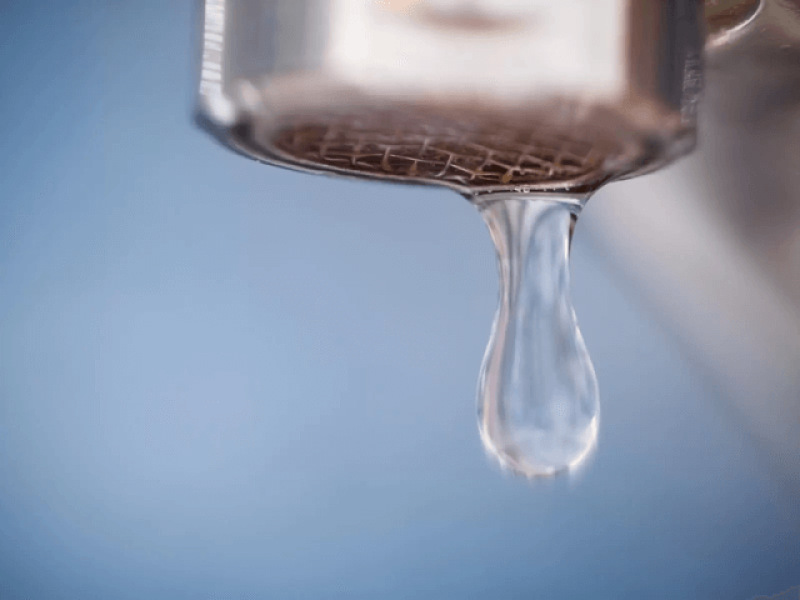In the ordinary chronicling of agribashing, we recently witnessed in France a ‘scary’ report on Google News or MSN News of an individual who had his tap water analyzed and traces of more than 200 pesticides were found. It was ‘fake news,’ the latest example of outrageous criticisms of modern farming, which once again demonstrates the press’ lack of ethics, and also the strange passivity of public agencies which allow their data and studies to be distorted and misrepresented without any pushback.
André Heitz, one of the most active agricultural science fact-checkers in France, investigated what was behind this story, and what he found is distressing:
First lie:
The citizen at the origin of this fake news did not have his tap water analyzed. He simply sought out public data on monitoring the quality of drinking water, accessible to everyone on the website of the Regional Health Agency in his region. This first point is relatively minor, but it gives fake news the conspiratorial touch which allows it to gain visibility on social networks and news aggregators: it gives the impression that the citizen at the origin of this story has had to search for data for himself which otherwise would have remained secret. It is also interesting to note that this lie is specific to the title of the Ouest France article, which appeared in Google News and MSN News.
Second lie:
When we consult the analysis report in question, we see that no pesticide was detected! Simply, according to usage dictated by scientific rigor, the ARS does not give any result equal to 0, for any molecule. Indeed, we can never be sure that a molecule was absent; we can simply state that, if it was present, it was at a concentration lower than the detection threshold of the analytical method used. This is why, for each molecule searched for, the bulletin carries a statement such as “< xx microg/l”, xx being the detection threshold of the molecule. This is the case for all molecules, which the author of this infotext understood as “there were traces of all molecules”. The analysis bulletin did mention an exceedance of the reference values (and not the quality standards, which would have led to the cessation of water distribution), but for microbiological reasons, not because of pesticides.
In defiance of all ethical rules, Ouest-France and Le Progrès, the two newspapers that spread this false news, therefore abstained from any verification, even the most basic, of the information that had been communicated to them by their ”alert launcher.“ Apparently, his “scientific guarantors” (a student researcher in biology and a pharmacist friend, both anonymous) were enough. It is all the more embarrassing since he was not unknown, at least for Progrès, which regularly opens its columns to him as a “defender of nature” and promoter of old varieties of vegetables.
Social networks are often accused of spreading false news, but this example shows us once again that the traditional press, even news organizations as well established as these two, are not necessarily more rigorous. This is a worrying demonstration of the disinformation onslaught to come as players in Generative Artificial Intelligence are moving towards agreements with the press, supposedly to train their models with information supposedly better sorted in sources like Google News and MSN News rather than the general internet.
The attitude of the ARS (French Ministry of Solidarity and Health, which is in charge of implementing regional health policy) also raises questions. On such sensitive public data, why retain, without easily visible explanations, a wording of the results that lends itself so easily to misinterpretations by the general public? Why not react when such a gross distortion of these analysis results comes out in the press? A right of reply (which the ARS is the only one able to request since it is a misinterpretation of its data) would allow the truth to be reestablished, and would encourage the newspapers concerned to show more responsibility. This lack of reaction is all the less understandable since this type of fake news sows suspicion about the desire of the ARS to truly protect consumers. When will there be “zero tolerance” for this false information?
NOTE: Following this feedback, the Ouest-France newspaper unpublished the misleading article and is contacting the ARS Rhône-Alpes-Auvergne to get the science facts right — a decision which we take note of with satisfaction, while regretting that there is no more explicit denial. But all in all, it’s still better than Le Progrès which has still not responded to their irresponsible journalism.
André Heitz is an agronomist by training and former United Nations system civil servant with the International Union for the Protection of New Varieties of Plants (UPOV) and the World Intellectual Property Organization (WIPO). He blogs in French.
A version of this article was originally posted at André Heitz’s LinkedIn and is reposted here with permission. Any reposting should credit both the GLP and original article.































